Table of Contents
It is really important to know that phrases and clauses are essential in the construction of sentences. An adjective phrase is a group of words that describe a noun or pronoun. It provides more information about the subject in a sentence, just like a single adjective does.
Learning to identify and use adjective phrases will improve your English sentence-building skills. This post will help you understand how to use them with clear examples, rules, and common mistakes to avoid.
What is an Adjective Phrase?
An adjective phrase is a group of words that modifies a noun or pronoun. The key part of an adjective phrase is the adjective itself, but the phrase can also include additional words like determiners or modifiers to give more information about the noun.
For Example:
The movie was really exciting.
She has a house much larger than ours.
The cake looks incredibly delicious.
In each example, the adjective phrase provides more detail about the subject.
Identification of Adjective Phrase
To identify an adjective phrase, look for a group of words that together describe a noun or pronoun. Adjective phrases typically contain an adjective, but they can also include adverbs, prepositions, and other modifiers.
- The dress is very beautiful.
The words very beautiful describe the dress, with very modifying the adjective beautiful.
- She owns a house bigger than mine.
The phrase bigger than mine describes the house, providing more detail about its size.
- The room became extremely hot.
The words extremely hot describe the room, with extremely intensifying the adjective hot.
Each adjective phrase provides extra detail to describe a noun.
How To Use Adjective Phrase
Adjective phrases can be used in different parts of a sentence. They usually come before or after the noun they modify, adding more detail to the sentence.
- The movie was really interesting.
The adjective phrase really interesting adds detail to the noun movie. It comes after the linking verb was.
- She wore a dress much prettier than mine.
The adjective phrase much prettier than mine describes the noun dress. It follows the noun and provides a comparison.
- The cake smells incredibly delicious.
The adjective phrase incredibly delicious modifies the noun cake, adding more detail about its taste. It comes after the linking verb smells.
In each example, the adjective phrase enhances the meaning of the noun it describes.
Adjective Phrases vs. Adjectives
Adjectives and adjective phrases both describe nouns or pronouns but differ in structure and the level of detail they provide.
An adjective is a single word that modifies a noun or pronoun by providing basic information such as color size or quality.
- The cat is happy.
- She wore a beautiful dress.
- The cake looks delicious.
Adjective Phrase
An adjective phrase is a group of words that work together to describe or modify a noun or pronoun. It includes an adjective along with words that modify it such as adverbs or prepositional phrases.
- The cat is extremely happy.
- She wore a dress much more beautiful than mine.
- The cake looks incredibly delicious.
Why Adjective Phrases Are Important
Adjective phrases are essential because they help add detail and clarity to sentences by modifying nouns or pronouns. They provide more specific descriptions, making writing more engaging and informative.
Instead of using a single adjective, an adjective phrase can convey a more detailed picture, improving the overall expression and communication.
Enhance Descriptions
Adjective phrases help give a fuller and more precise description of the noun.
- The tall, graceful woman walked into the room.
Add Variety to Writing
Using adjective phrases adds variety to sentence structure, making writing more dynamic.
- The incredibly fast car sped past us.
Provide More Information
They allow you to convey additional information about a noun, making it clearer for the reader.
- The cake with colorful icing looked delicious.
Examples Sentences
Here are some example sentences using adjective phrases:
- The car is brand new.
- She is incredibly talented.
- The book was quite interesting.
- He looks extremely tired.
- The painting is amazingly beautiful.
- The room smells pleasantly fresh.
- The movie was incredibly boring.
- The dog is very friendly.
- The sky looks beautifully clear.
- The cake tasted absolutely delicious.
- The street was dangerously icy.
- The music is soothingly calm.
- The flowers are beautifully arranged.
- She feels absolutely wonderful.
- The mountain is amazingly tall.
Notice how the adjective phrases add detail and make the sentences more specific.
Rules To Keep in Mind
Adjective phrases are groups of words that work together to modify a noun or pronoun. They add more detail or description to the subject of the sentence. Here are some important rules to keep in mind when using adjective phrases.
Adjective Phrase Modifies a Noun or Pronoun
An adjective phrase always describes a noun or pronoun, giving more detail about it.
- The extremely tall building caught everyone’s attention.
- The incredibly loud noise startled me.
- The beautifully painted house is on our street.
Position of Adjective Phrase
Adjective phrases can come before or after the noun they modify.
- A very big dog ran across the yard.
- The dog is very big.
- She wore a dress much more elegant than mine.
Use of Modifiers
An adjective phrase often contains modifiers like adverbs or prepositional phrases that intensify or explain the adjective.
- The cake was absolutely delicious.
- He is remarkably strong.
- The house looks incredibly old.
Common Mistakes
Misplacing Adjective Phrases
Misplacing an adjective phrase can confuse or change the meaning of a sentence. The adjective phrase should be placed directly next to the noun it describes.
- She wore a dress with beautiful flowers on the beach. ❌
- She wore a dress on the beach with beautiful flowers. ✅
Using Double Comparatives or Superlatives
Double comparatives or superlatives occur when you incorrectly combine two comparative or superlative forms. This mistake often happens when you use words like more or most along with adjectives that already have a comparative or superlative form.
- She is more smarter than her sister. ❌
- She is smarter than her sister. ✅
Redundant Descriptions
Redundant descriptions occur when you use unnecessary words that repeat the meaning of the adjective or phrase, leading to repetition. It’s important to avoid redundancy to make your sentences clear and concise.
- He is very unique. ❌
- He is unique. ✅
Overuse of Adjective Modifiers
Overusing adjective modifiers happens when you use multiple words like very, extremely, or really to emphasize an adjective. While modifiers can add emphasis, overusing them can make your writing sound redundant or exaggerated.
- She is extremely very smart. ❌
- She is extremely smart. ✅
Adjective Form Mistakes
Adjective form mistakes occur when you use the wrong form of an adjective, such as using the comparative or superlative incorrectly. It’s important to use the correct adjective form to maintain grammatical accuracy.
- She is more better at math than me. ❌
- She is better at math than me. ✅
You May Also Like

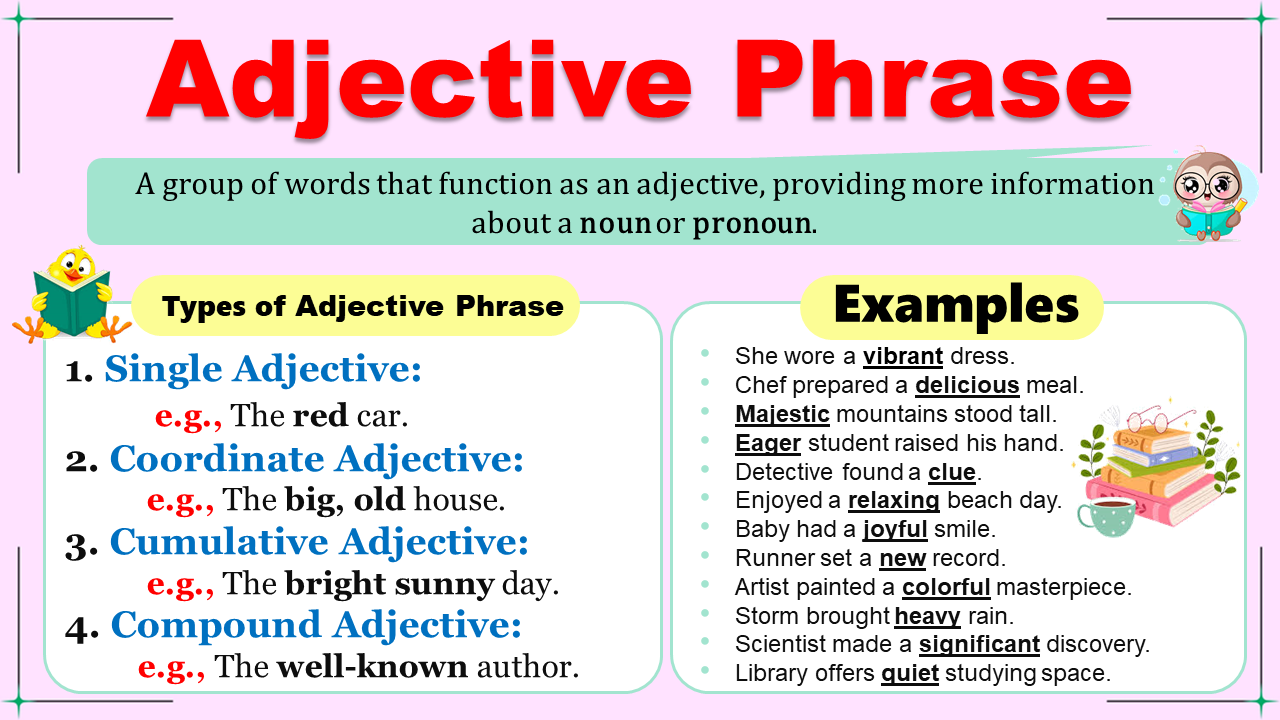
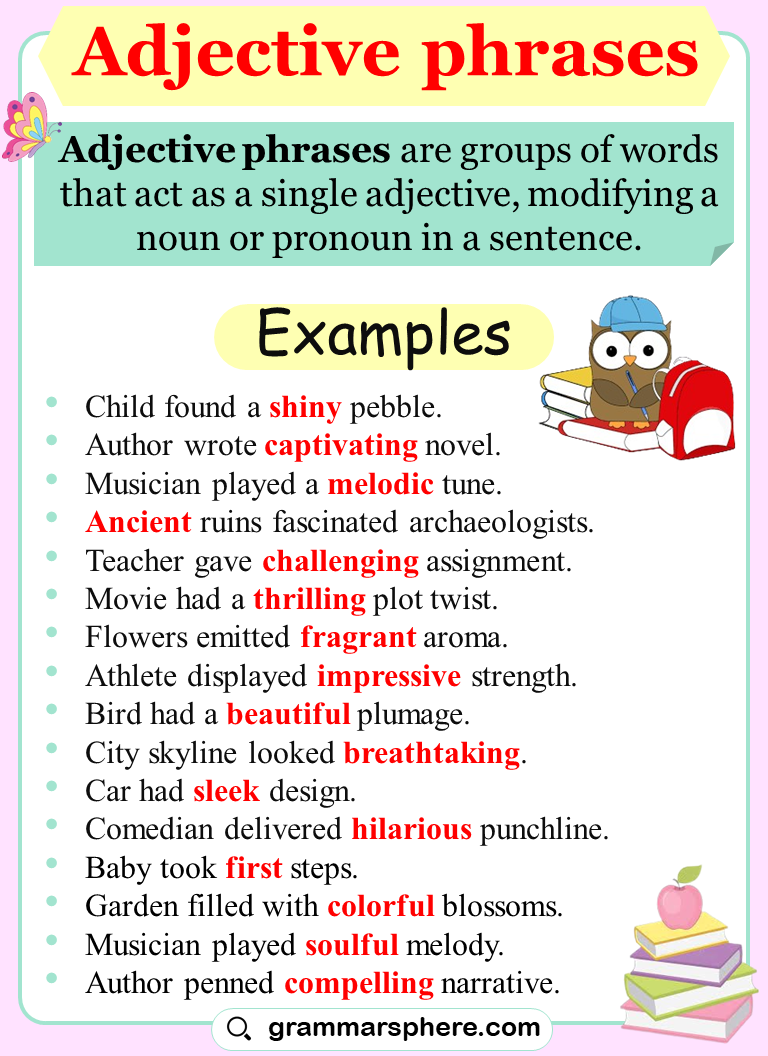
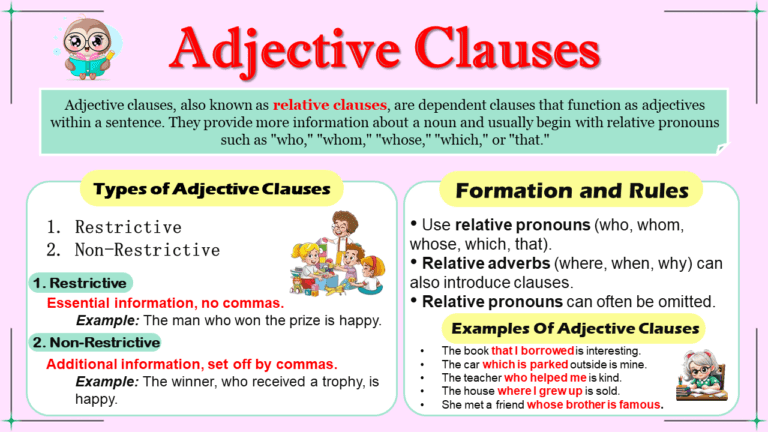
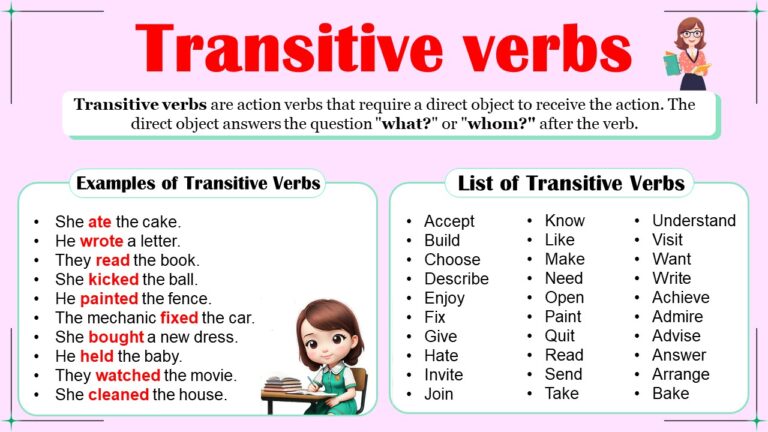
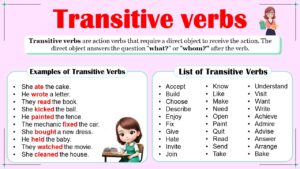
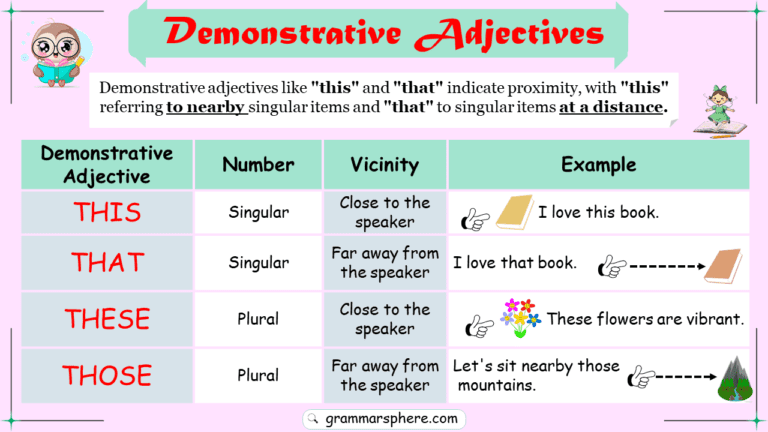
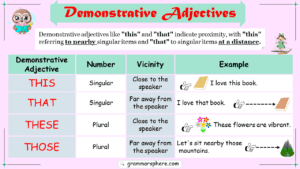
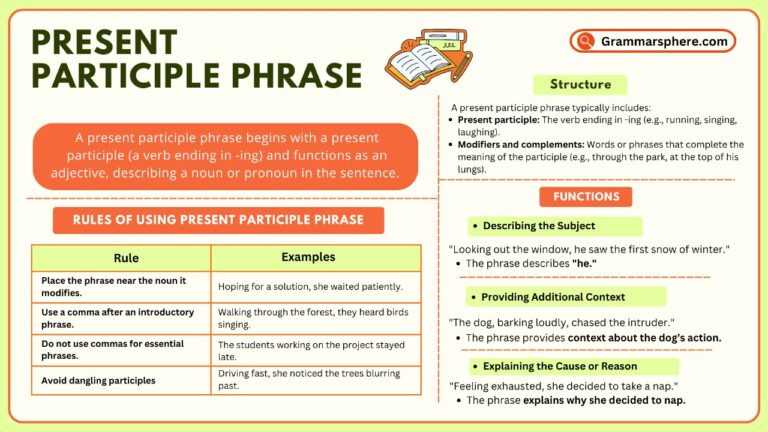
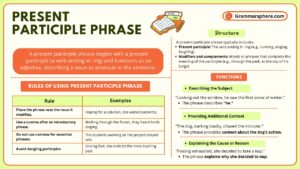
Leave a Comment